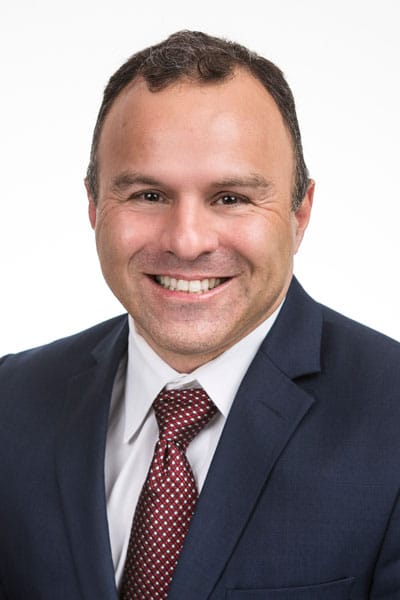For Joseph Fiorentino, managing director of health and public service at Accenture, the future of government healthcare can be found in data and analytics.
Fiorentino has spent the last fifteen years in the field of government healthcare, picking up on industry trends through his work at Accenture and beyond. Based on his observations, as the pace of system reform accelerates in government healthcare programs, state agencies are increasingly realigning payment and quality measurement to set their programs on the path to reform. They are broadening the sources of data they use and incorporating interagency data and clinical data into new reimbursement strategies and outcome-based assessment.
With data-driven decision-making becoming a critical feature in government healthcare programs, states will require deep analytic capability. With his experience in government and IT, Fiorentino is now working to spearhead initiatives to improve the use of analytics in public health policy decisions, as well as the state of government healthcare overall.

One of Fiorentino’s major concerns with healthcare is the increasing cost of care for many Americans, particularly those on Medicaid. Issues such as declining health quality, rising medical costs, and the opioid epidemic are only some of the problems he believes analytics can help support. Furthermore, Fiorentino is particularly worried about the prevalence of unnecessary, low-value procedures being performed on patients who may not need them, resulting in greater costs for providers and patients alike.
At Accenture, a leading global professional services company, one of his main goals is to help the company increase the analytic capability of state healthcare systems to improve health outcomes and drive value-based care. A major emphasis of this initiative surrounds holistic, managed care, and finding ways to improve the bundling of services across clinical, social, and behavioral programs, in addition to incentivizing behavior to improve outcomes. “Accenture has consulting in their DNA,” he says, adding that this gives the company an edge in addressing some of the most challenging healthcare issues facing state government.
At the heart of Fiorentino’s work is his perspective that government healthcare needs to move “from hindsight to insight.” Government healthcare agencies who want to leverage analytics for meaningful action can “start small” by focusing on faster deployment of new analytics capabilities and tools by piloting with the intent to scale and driving adoption by raising the analytics IQ across the organization.
Through analytics, Fiorentino believes it is more efficient to enable data-driven experts on a cloud-based data platform that provides user-
specific tools and data and analytic services to facilitate better, more agile service delivery. Cloud-supported analytics allow for the rapid curation and implementation of state-of-the-art algorithms and applications in a fast-changing environment. One of the ways Accenture does this is by delivering a data platform that enables an ecosystem, including with companies such as Milliman, a leading provider in healthcare analytics. Milliman’s MedInsight platform, for instance, provides benchmark tools that help providers analyze costs, quality of care, and more—valuable metrics that can be used in a larger ecosystem of information rather than building from the ground up.
“Why build it when we can just partner?” asks Fiorentino, citing platforms such as Milliman’s as ideal examples that can contribute to this interdisciplinary approach to healthcare.
But according to Fiorentino, there are three major obstacles to overcome in the current state of data analytics in government healthcare. First, it remains difficult, if not impossible, to find all of the skills required for analytics success within any one individual. A successful analytics project brings together talent working as an inter-
disciplinary, high performing analytics team. One approach is to establish “pod” teams that have a mix of roles, including data scientist, analytics modeler, visualization expert, data engineer, business analyst, and business domain expert. By combining these capabilities, analytics pods can take an integrated view of business problems. Fiorentino works to build interdisciplinary and collaborative teams that bring together everything from business skills to data science, information technology to analytics, and more. “We have an incredibly impressive talent pool that allows me to bring these different dimensions together and blend it with our client’s talent pool,” he says.
Another issue Fiorentino works to solve is the implementation of big data architectures that work hand in hand with traditional architecture to provide better outcomes for their work. “These are not traditional data sets,” says Fiorentino, citing a wide range of data from different angles and the need to combine this data effectively. How to take that data and glean real insight from it is a question
Fiorentino regularly asks. His solution is to foster a sense of collaboration within the ecosystem Accenture is developing, in which organizations start with the question, pull the necessary data, and work within their ecosystem of partners to achieve results.
The practical issues of sharing and storing the data they accumulate is yet another obstacle to overcome in Accenture’s ecosystem, especially the growing need for hybrid architecture to support it. “Especially in state government, funding decisions are made by consensus because it involves multiple agencies working together,” Fiorentino says. “Organizations need to be able to share data effectively, access said data, and make its findings actionable.”
The ultimate goal for Fiorentino and Accenture is to help their government clients build an ecosystem that serves the people as best it can. With a public healthcare system that is constantly in flux, he and his team spend a great deal of time working within the industry to anticipate changes. “Politics and ideology aside, it’s about putting the individual first,” he says. For Fiorentino, an important factor in his job is to marry individual patients’ circumstances with the appropriate support. “It’s not just about giving them the medications they need. It’s also about putting them on a path to self-sufficiency,” he says. If successful, this approach to data analytics can cut down on the performance of costly, unnecessary procedures, which then leads to more effective, cost-efficient care.
For Fiorentino, Accenture’s goal is to help its government clients create a sustainable analytics practice that is interdisciplinary, collaborative, and insight-focused. “The biggest mistake you can make is to work in a vacuum,” says Fiorentino. Drawing from a variety of client experience, existing data tools, and working with an ecosystem of creative partners, Fiorentino and his team use these capabilities and experiences to educate others, gain quick insights, and facilitate evidence-based interventions that can help health care providers and patients make better decisions for their health.
Photos by Booray Perry
Milliman MedInsight would like to congratulate Joseph Fiorentino on this honor. Joseph has been instrumental in providing vision and managing the relationship between Accenture, Milliman MedInsight, and other analytic providers. Milliman MedInsight is proud to be a part of Accenture’s re-envisioning of providing analytics to state health and human services organizations.


